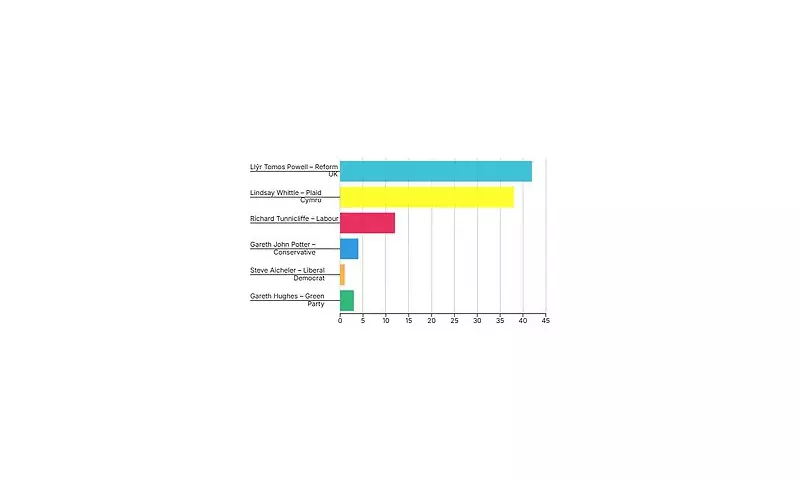
A political bombshell has rocked Welsh politics as new polling data suggests Labour could be facing devastating losses in the next Senedd election, while Reform UK emerges as a potential kingmaker.
Labour's Welsh Stronghold Under Threat
The exclusive survey by Redfield & Wilton Strategies reveals Sir Keir Starmer's party could lose up to 10 seats in the Welsh Parliament, dropping from their current 30 seats to just 20. This represents a catastrophic blow to Labour's traditional dominance in Welsh politics.
The projected outcome would leave Labour seven seats short of an overall majority, forcing them into difficult coalition negotiations or minority government arrangements.
Reform UK's Meteoric Rise
Perhaps the most startling revelation from the poll is Reform UK's surge to 16% of the constituency vote. This places them just two percentage points behind Plaid Cymru and signals a dramatic realignment of Welsh politics.
The anti-establishment party appears to be capitalising on voter dissatisfaction, potentially winning their first-ever seats in the Senedd and establishing themselves as a significant political force in Wales.
Regional Breakdown: A Complex Picture
The polling data paints a complex regional picture across Wales's five electoral regions:
- Labour maintains leads in South Wales West and South Wales Central
- Tight three-way battles emerging in North Wales and Mid and West Wales
- Conservative support holding steady despite national challenges
- Plaid Cymru facing increased pressure from multiple fronts
Constituency Battles Heat Up
In individual constituency races, the research indicates several potential upsets:
- Labour could lose key marginal seats they previously held comfortably
- Conservative incumbents face strong challenges from multiple parties
- Former Labour strongholds now appearing as genuine battlegrounds
- Several three-way marginals emerging across the country
The changing political landscape suggests Welsh voters are reconsidering traditional party loyalties, with issues like the economy, healthcare, and constitutional matters driving the shift.
What This Means for Welsh Governance
If these polling numbers materialise in the actual election, Wales could be facing:
- A weakened Labour administration struggling to pass legislation
- Increased influence for smaller parties in parliamentary arithmetic
- Potential coalition negotiations or confidence-and-supply arrangements
- A more fragmented Senedd requiring cross-party cooperation
The next Welsh election is shaping up to be one of the most unpredictable and consequential in modern Welsh history, with traditional political allegiances being tested like never before.





